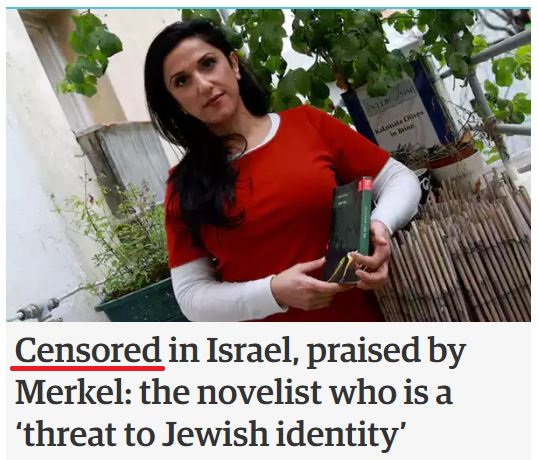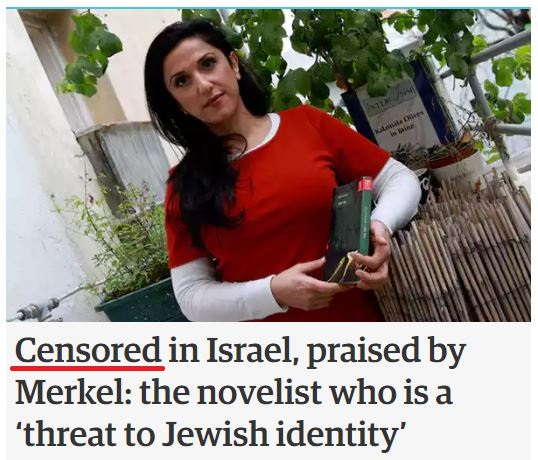Last year, a decision by a professional pedagogic body not to include the novel ”Borderlife” by Dorit Rabinyan – which features an Israeli-Palestinian love affair – in the Israeli high school curriculum was mischaracterised by Times of London as a “ban”.
We prompted a correction to the Times of London article – as did our colleague at BBC Watch to a similar claim at BBC Radio – after demonstrating to editors that there was in fact no such “ban”.
- Israelis are free go to bookshops anywhere in the country and purchase the book.
- The book made it to the Israeli best seller’s list.
- Israeli students can borrow the book from libraries.
- Israeli teachers in advanced literature classes across the country are free to assign the book to their students if they choose.
Yesterday, the Guardian committed a similar error, in a story by their Jerusalem correspondent, Peter Beaumont, about the controversial book which included the following headline:
The word “censor” is also repeated in the text.
A year ago, the Israeli novelist Dorit Rabinyan was at the centre of an unexpected storm. Her third book, All the Rivers – about a relationship between a Palestinian artist, Hilmi, and an Israeli woman, Liat – had been selected for the national curriculum. Then, abruptly, it was withdrawn by the education ministry because of its subject matter.
That attempt at censorship – as Rabinyan acknowledges – had its positive aspect. Sales of her novel have doubled since it became a cause célèbre in Israel’s culture wars in January 2016. Now being translated into 20 languages, it was published in the UK last month. And Rabinyan is preparing to set off on a month’s book tour of the US.
The use of the word “censorship” in both the headline and text is important because Beaumont contextualises the row – as he often does – as part of a broader assault on the media, the arts and NGOs by the current right-wing government. However, as with Times of London’s description of the incident as a ‘book ban’, Beaumont’s use of the word “censorship” is extraordinarily misleading, and is contradicted by the Guardian’s official Style Guide, which defines the term as “preventing publication”.
Tellingly, in contrast with Beaumont’s false claim that Israel censored the book by Rabinyan, the Guardian hasn’t covered a story earlier in the year involving the Palestinian Authority’s attorney general officially banning a book by a Palestinian writer because of gay sexual references and politically unpopular opinions. The writer, Abbad Yahya, faced death threats, was forced to flee the PA and is now in hiding “elsewhere” in the Middle East.
Of course, such double standards in coverage – whereas every Israeli policy perceived, rightly or wrongly, as illiberal or “undemocratic”, is magnified and exaggerated, while gross violations of human rights by the PA are ignored – permeate the Guardian’s coverage of the region.
We have lodged an official complaint to the Guardian readers’ editor about the erroneous use of the word “censor”, and will update you when we receive a reply.
Related Articles:
- BBC Watch complaint on “banned” book upheld (BBC Watch)




